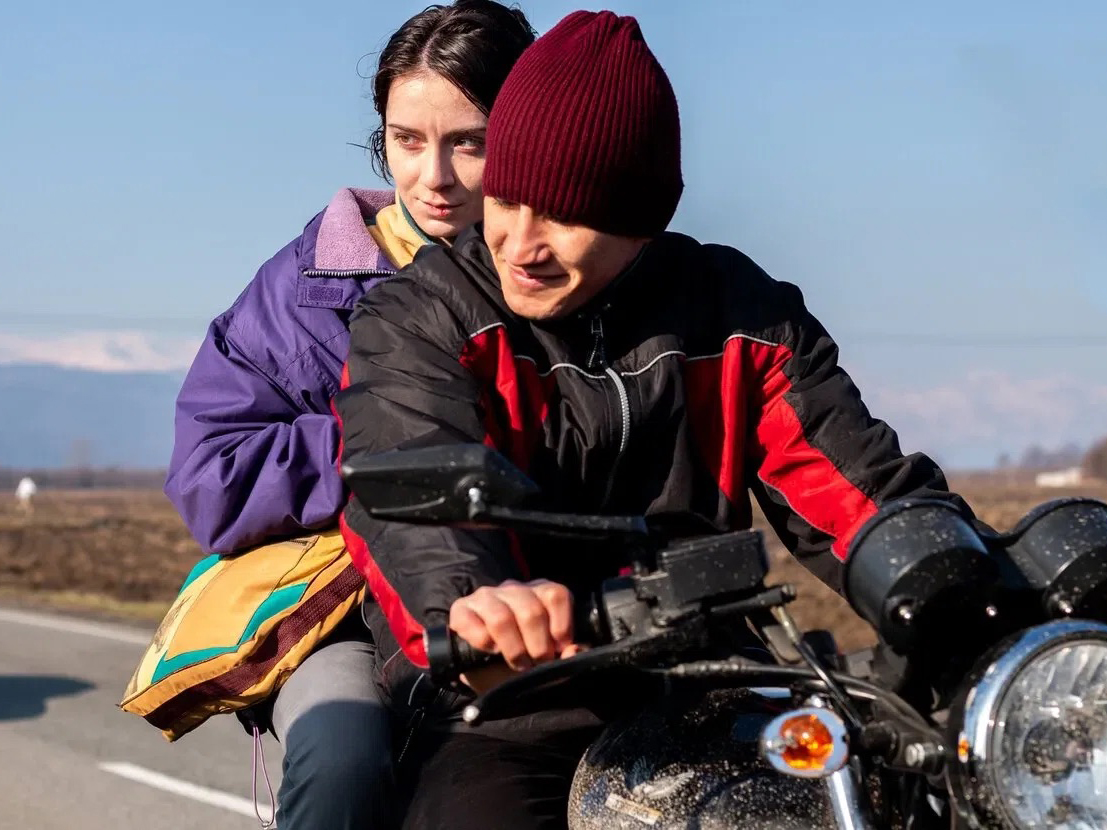
- Golden Globe Awards
Unclenching the Fists (Russia)
Unclenching the Fists is only the second feature film by an aspiring Russian filmmaker, Kira Kovalenko. Co-written with Anton Yarush and Liubov Mulmenko, this 97-minute drama received the grand prize in the Un Certain Regard section of the Cannes Film Festival in 2021.
Kovalenko was born in 1989 in Nalchik, the capital city of Kabardino-Balkarian Republic in the North Caucasus, Russia. After she graduated from college, she moved to Moscow aiming to become a web designer, but soon she returned home to join a filmmaking class led by the award-winning Russian director Alexander Sokurov, who is widely considered to be among the major European auteurs of our time. Kovalenko’s debut feature film was released in 2016, and after its premiere, she spent a few months in a small town in the North Caucasus focusing on her next film.
Unclenching the Fists is a low-budget drama set in 2020 in Mizur, an old mining town of North Ossetia, a small republic in the Russian North Caucasus, rarely seen on screen. It is a story of a family relocated to a small town after a tragedy. Zaur, the father, lives with his daughter Ada and her younger brother Dakko. His elder son, Akim, has moved to the city of Rostov, but he returns home after he receives a message from Ada notifying him that their father is on his deathbed. Akim comes to realize that Ada has lied to him, though he understands the reason behind her lie. Hoping that Akim would help her escape from her father who won’t let her travel to another town for a surgery she needs, Ada is ready to go to any lengths to gain her independence. Though Akim indeed tries to help her, Ada soon realizes that he’s not going to give her her freedom. Instead, he will become Zaur’s replacement. Despite her love for him, she rejects being trapped in the wheels of tradition.
Time seems to have frozen in this small town, and the impression that the movie is set in the 1990s is refuted by a few rare elements like a Lionel Messi poster in Dakko’s room or someone mentioning the “fight between Conor (McGregor) and Khabib (Nurmagomedov).” Quite interestingly, Unclenching the Fists is one of those rare films where mountains, that are conventionally associated with personal freedom, are analogous to the prison walls surrounding the town of Mizur, which is the center of Ada’s life. And at the same time, the bleak town is full of small color elements, such as graffiti on the walls of ruined buildings, the purple vest Ada wears almost all the time, or her makeup done by the twin toddler daughters of her friend.
Though Kovalenko doesn’t speak Ossetic, this is the language of her second feature film: she wrote the script in Russian, but she wanted the film to be as authentic as possible, and after conversations with her cast, she decided to translate the entire film into the Ossetic language. Some of the dialogue was written right on the set by the actors. In one of her recent interviews, Kovalenko says, “If I don’t speak the language, I’m not reading out information but I’m sensing the music. It aids me in creating multi-layered images conflicting with the sound and intonation.”
While searching for her actors, Kovalenko made a directorial decision to work with non-professional actors. Only two members of the cast have an acting background: Milana Aguzarova who plays Ada is a drama college graduate, and Unclenching the Fists is her acting debut; her performance was already named one of the year’s best by the jury of Cannes’ Un Certain Regard. Alik Karaewv who plays Ada’s father is a prominent actor of the Narty Equestrian Theater. The rest of the cast are non-professional actors spotted in schools and sports clubs, including Soslan Khugaev starring Ada’s elder brother Akim, and Khetag Bibilov playing Ada’s younger brother Dakko.
This incredibly painful story of a beautiful young woman who only wants to fix the injury from which she suffers tremendously, while her father sadistically hides her passport out of fear that she’d leave him for good after the surgery, might be mistakenly interpreted as a story of intergenerational conflict or a woman’s life in a radically patriarchal society. But this is actually a profound coming-of-age drama about human vulnerability and people fighting their own demons.

